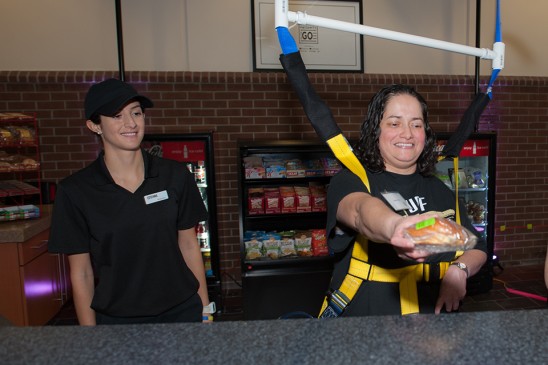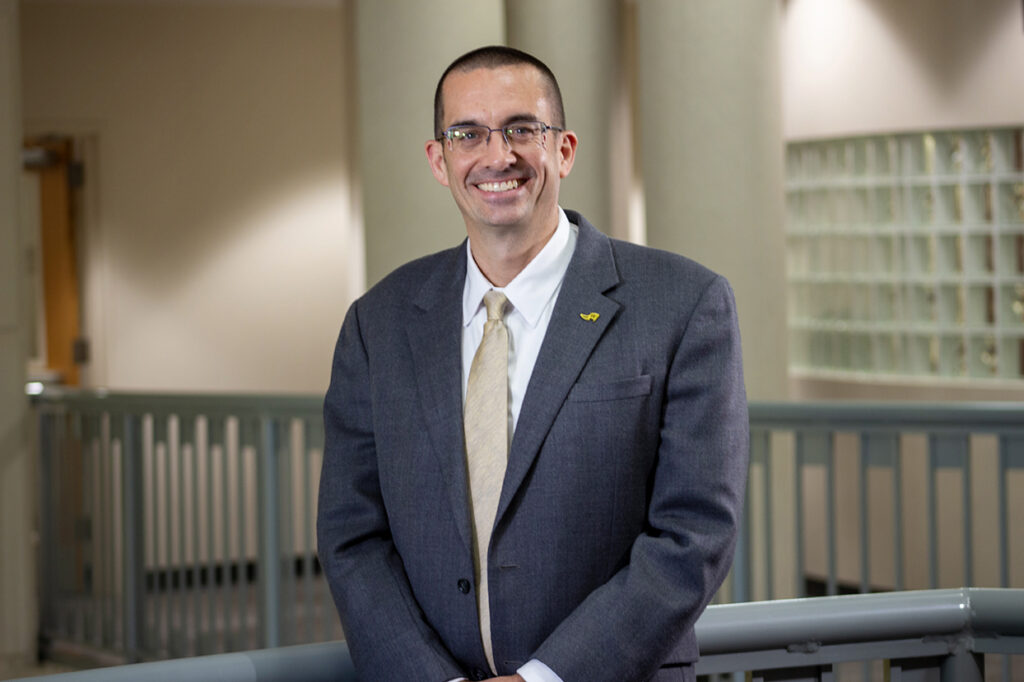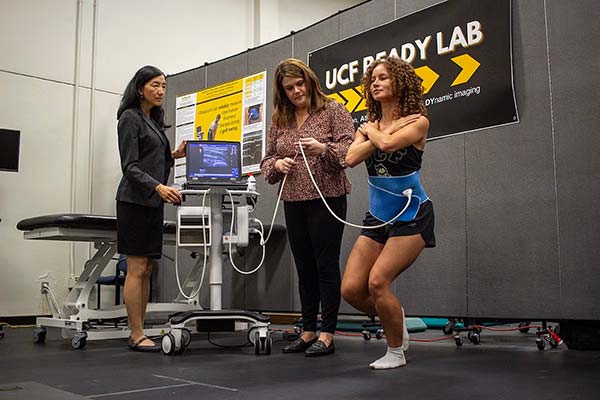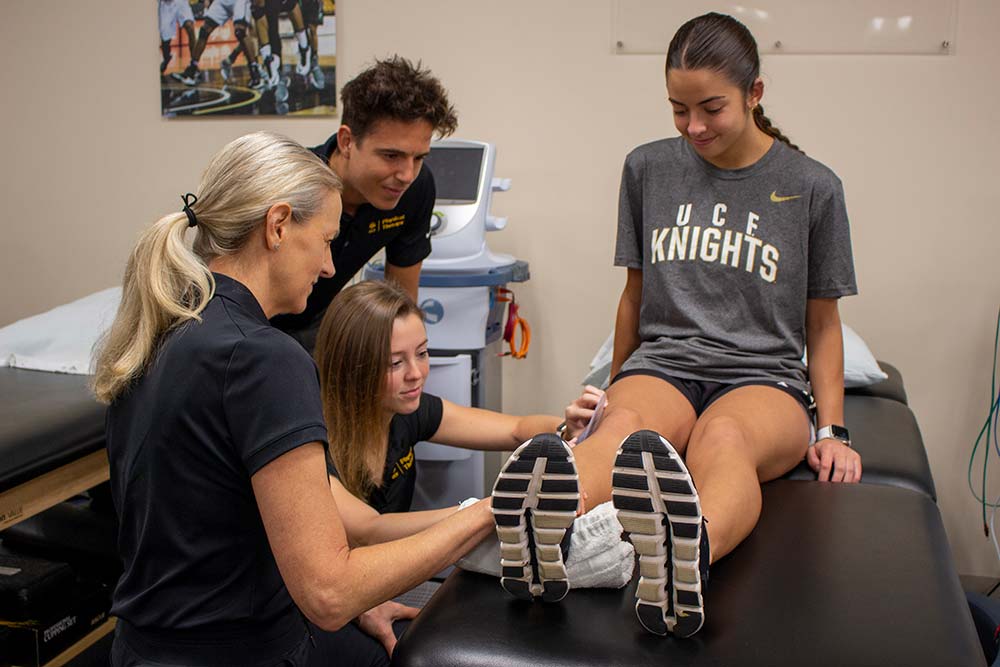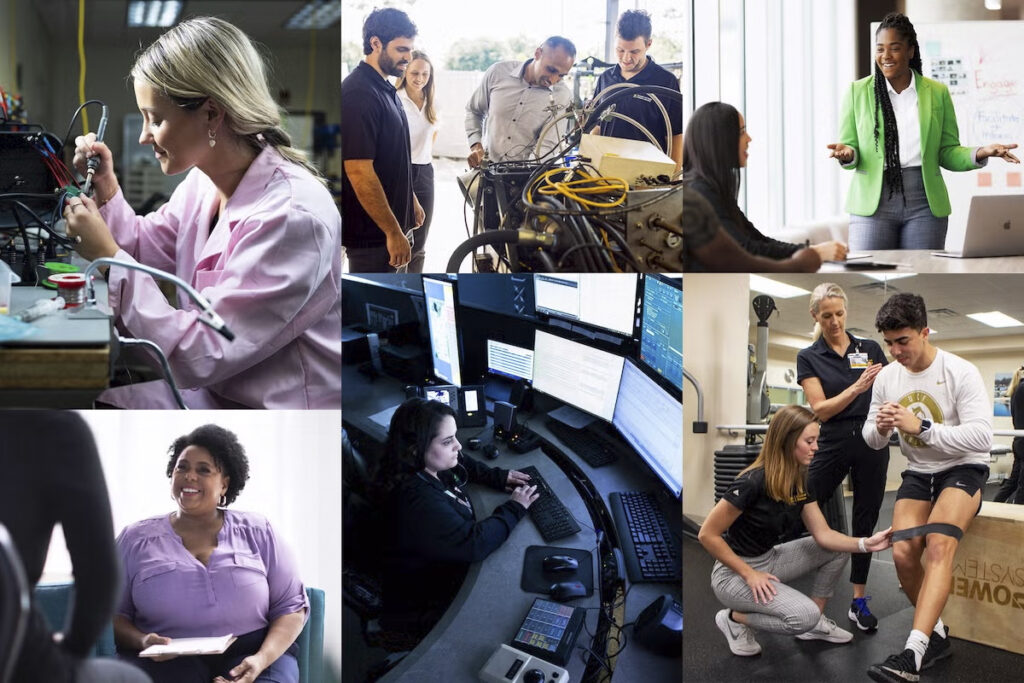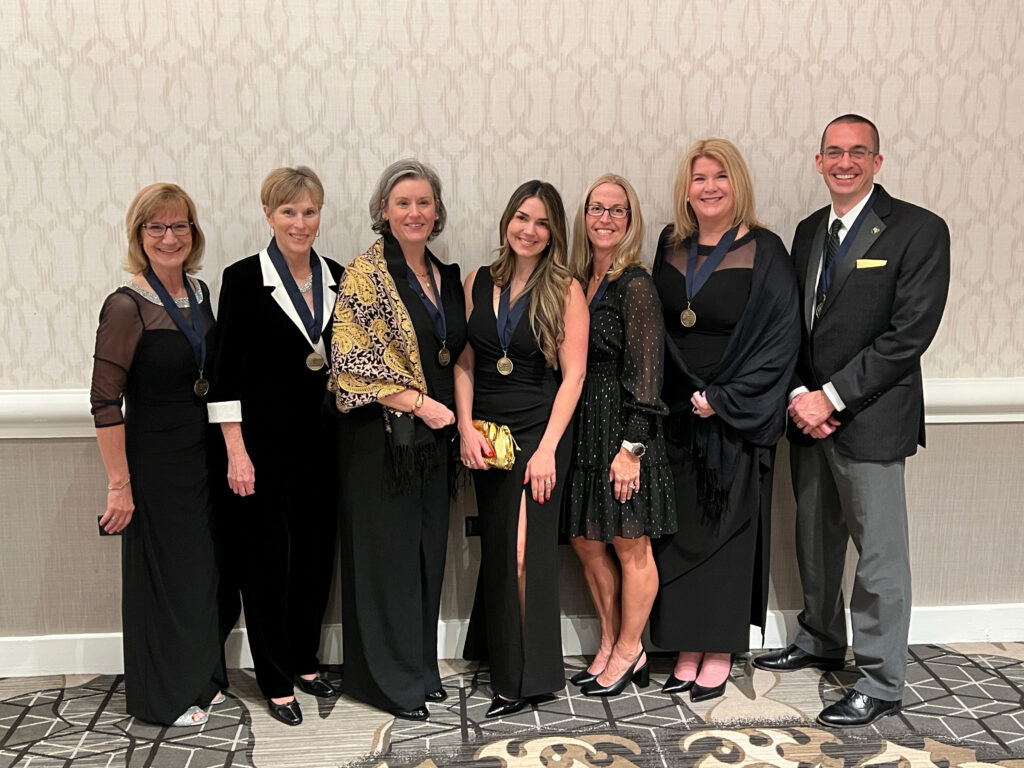February of last year, the faculty at one Orlando college set out to prove how a real-world curricula could improve the lives of young survivors with traumatic brain injury (TBI).
The University of Central Florida opened up a food kiosk called Knights on the Go Café, giving patients with TBI the chance to recover their workplace skills, while also furthering the medical education of their 118 physical therapy (PT) students. In this functional workspace, PT staff and advanced students are paired alongside survivors who volunteer part-time. The goal is to support TBI patients in a work setting by sharpening their real-world skills and highlighting their strengths on the job — those that would otherwise go unnoticed by the community and business owners.
Jennifer Tucker, the project’s lead professor, explains to Babble, “I wanted to open the café because it created a platform for advocacy, education, and research.”
Knights on the Go Café is groundbreaking in so many ways. Only the second of its kind, as the first one was opened in 2014, this innovative rehabilitation setup applies the ceiling-based harness system that was created by University of Delaware PT professor Cole Galloway and Enliten designs. This system grants the patients full mobility through the support of overhead guide bars.
The staff is urging universities nationwide to launch their own harness-equipped cafes. Tucker hopes that this system could even transfer from academia to companies. “The harness system is fairly inexpensive to implement, so I hope that businesses will replicate these efforts to create employment opportunities for individuals with disabilities,” she tells Babble.
Not only has this opportunity allowed for more meaningful student engagement, creating a sense of community for all involved, but it’s also really helping the participating TBI patients.
Survivor Anthony Pagliocca has improved both his memory and balance through his work at the cafe. Less than a year after high school graduation, his plans for college and a career were sidelined after a motorcycle accident. Experiencing both cognitive and physical impairments from the incident, the cafe has given him a much-needed confidence boost.
His mother, Jeanne Hamilton, shares with Babble:
“He is not judged for his disability when he is there. He looks forward to the socialization. And he’s working on skills that will help him get back into the workforce.”
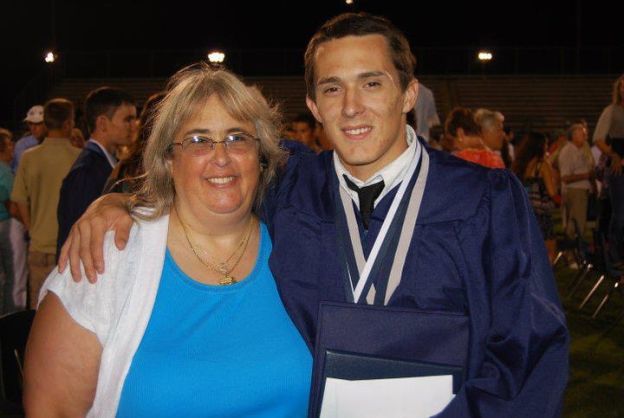
Another TBI survivor, Diana Tafur, is hard at work regaining her former sales skills. At just 22, she sustained brain damage when she was ejected from a New York City cab after it was hit by a drunk driver. After being in a coma for five months, Diana awoke having to relearn how to do almost everything. Remarkably, she can now multitask as a cafe cashier.
Tucker tells Babble that experts are interested in studying the impact of this therapy-driven worksite. Specifically, they want to learn which aspects of the workspace are most favorable for those recovering from neurological injuries. This is why the feedback that Anthony, Diana, and the other volunteers provide is so important.
“Diana is sharing what works and what doesn’t work. They are learning through her,” says Diana’s father, Ivan Tafur.
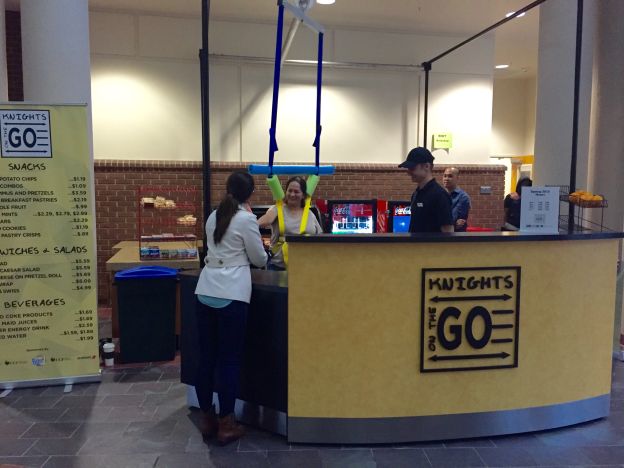
While all outcomes are being evaluated, Tucker says that the most significant response from survivors is that working at the cafe gives them a sense of purpose.
According to the Brain Injury Association of America, there are 5.3 million people in the U.S. living with a lifelong disability as a result of TBI. These survivors want what everyone else wants in life: a good job, a nice home, and somebody to love. Now thanks to the Knights on the Go Café, parents Jeanne and Ivan share a newfound hope for their children’s future.
While more work still needs to be done in this field, it’s wonderful to know that there are places like this cafe that support and foster the rehabilitation of these young survivors. Now if only more schools and companies could follow suit.
